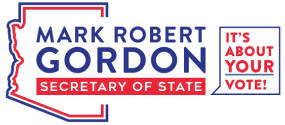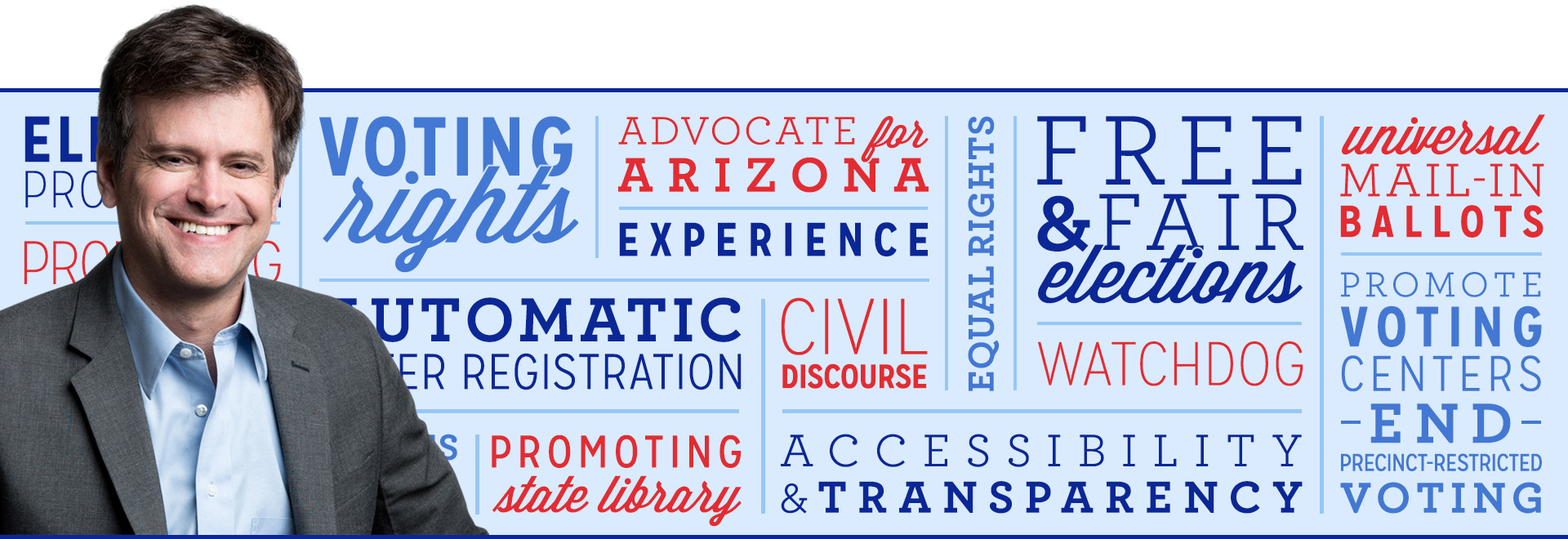Voting Should Be Easy
Voting is the fundamental right of our democracy. Registering to vote and casting your ballot should be easy. Arizona’s Permanent Early Voter List (PEVL) is a great first step, but there is more we can do. By expanding the number of polling locations, increasing outreach to register more voters up for the PEVL, and designing new systems to make dropping off or casting a ballot easier, like not requiring a specific location, we can make voting easier.
Unfortunately, the opposite has happened. Voting over the last few cycles seems to be getting more difficult. Voters can no longer count on the polling location they know to remain open, or even that it will be nearby. Laws have changed, making it a felony for volunteers to make sure ballots get mailed and in on time. Voter registration is even an obstacle with such an early deadline, of which many are unaware until it’s too late.
Some of the best solutions to making voting easier would require the state legislature to pass a law, but there are many things the Secretary of State can do and for which they can advocate that would make voting simpler and easier for all voters in the state.
Whoever holds that job should wake up each day with one goal in mind, making voting easier.
Voting Should Be Efficient
While the 6-hour wait times of the 2016 Presidential Preference Election is the most extreme example of the inefficient system, it is hardly an exception to the rule. Many polling locations have been plagued by long waits, insufficient materials, and broken machines. We can make voting more efficient by increasing early voting windows, making PEVL more ubiquitous, and by making sure there are enough polling locations that are adequately resourced. I’ve worked alongside many poll workers and helped monitor elections. These workers are extremely dedicated, but are often frustrated by the lack of clear direction. With diligent leadership, we can streamline this process.
Not only is casting a ballot in Arizona often an inefficient process, counting them is even worse. Luckily, the last presidential election didn’t need to wait for Arizona’s results, or the country would have been waiting days, maybe weeks, for a result.
Arizona shouldn’t be making national headlines for our long lines or inefficient systems. Instead, we should be serving as a model for fast, easy, and efficient voting.
Voting Should Be Secure
When it comes to Election Security, knowing that the ballot you cast will be counted and that the results are correct is essential, but it’s not the only security threat we face. The Secretary of State is also in charge of protecting your voting and voter registration data. Whether it’s an antagonist nation seeking to use your data to target you for propaganda, a criminal hacker looking to steal your information for a profit, or a government agency seeking to overstep their authority to use your data for political goals, the Secretary of State should be there defending your information. When you register to vote you trust that the information you provide will be kept safe. As your Secretary of State, I will make securing your information one of my top priorities.
Every Vote Counts
We need to be aware of the constant threats and barriers that bad political actors are trying to push. Many politicians and special interests work hard to make sure that it’s difficult for people who disagree with them to vote, or for their vote to count. There are many tricks they have designed to thwart the will of the voters. By designing gerrymandered districts, they can choose their voters. They concentrate as many of those who disagree with them into one district, then spread the rest around so that their politicians win the most seats. In Wisconsin, the state legislature gerrymandered their districts so badly that despite getting a minority of the vote in a recent election, the ruling party retained a nearly 2/3rds majority in their legislature. Their tactics are now going to be reviewed by the Supreme Court.
Voter ID is another one of their favorite mechanisms for keeping voters from the polls. Many politicians saw that many low-income populations lacked proper state-issued ID. Despite there being basically no evidence of in-person voter fraud, that an ID would stop, legislatures across the country passed laws requiring IDs. Worse, many excluded student IDs.
We must remain vigilant and fight against these anti-democratic efforts.



